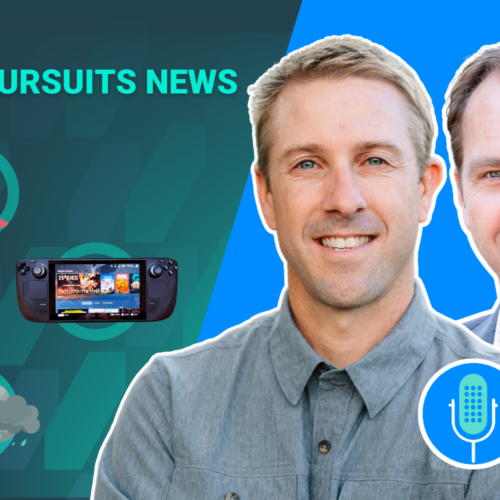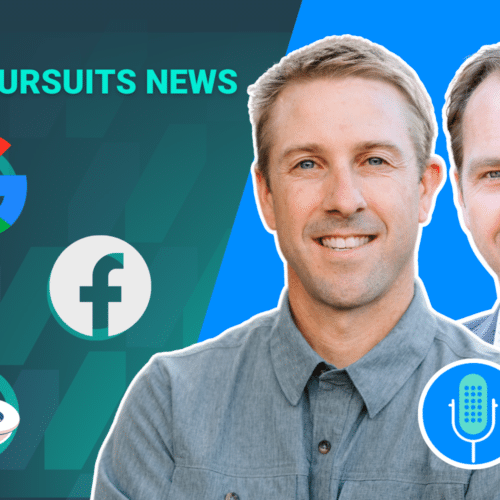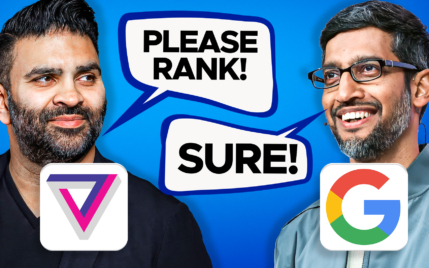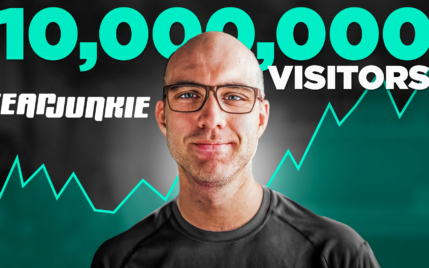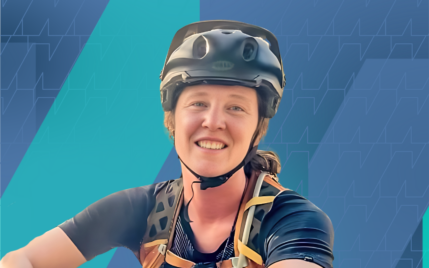How Mike Dinich Built an SEO Focused Personal Finance Blog with 700k Visitors a Month
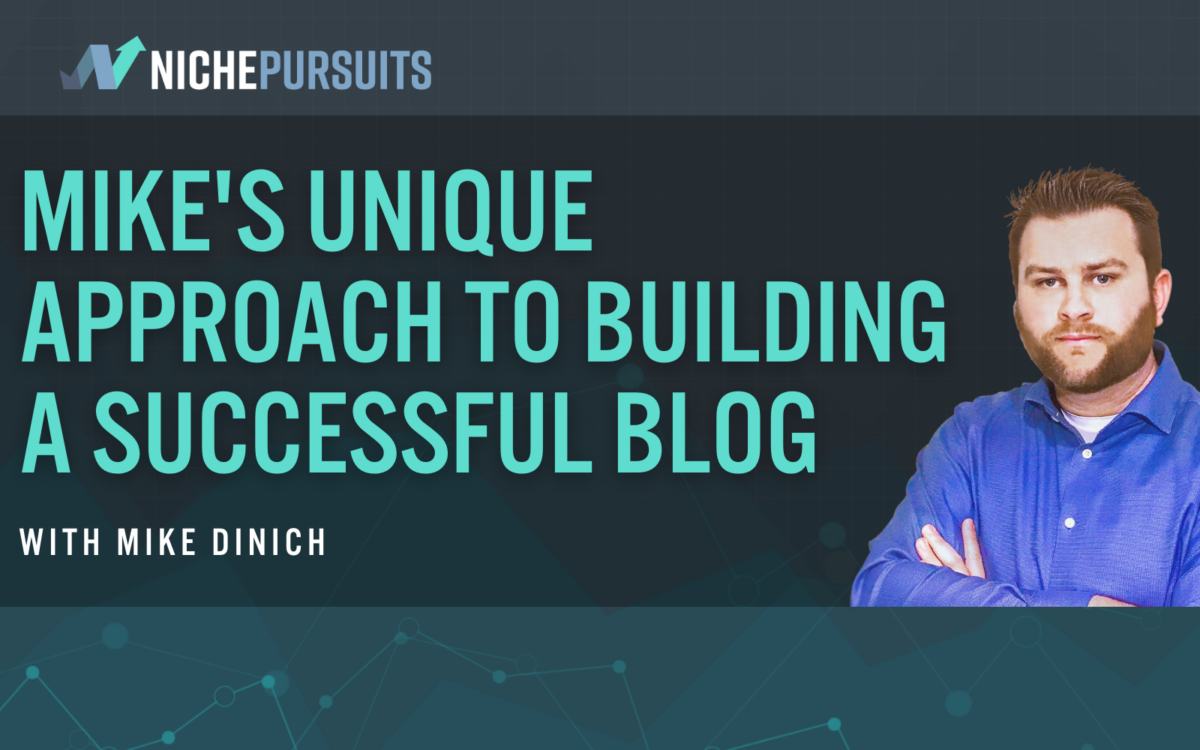
When you buy something through one of the links on our site, we may earn an affiliate commission.
Today's guest on the Niche Pursuits podcast is Mike Dinich.
The financial advisor got into blogging accidentally after a request from a client to run a personal finance blog. Mike soon realized that he could produce better content than the client who approached him to run the blog.
This started a journey that led him to create a website that is approaching 700 thousand visitors each month from mostly organic traffic.
During the call, Mike talks about how a mentorship mastermind group helped him learn the skills and techniques needed to succeed and how a couple of challenges he set himself spurred him on.
One of those challenges was to receive enough page views to get accepted on Mediavine, and he challenged himself to hit the 25 thousand page views needed in just one month!
Mike touches on the strategies he used to hit these numbers and provides an interesting take on how he grew his website to hit some great income numbers — like the 30 thousand dollars he earned in revenue last month.
The financial expert talks highly of Reddit and shares his thoughts on how to do things right on the platform, and just as important, how you can do things wrong on Reddit.
Besides the above, the interview touches on HARO (Help A Reporter Out) backlinks and the overall concept of link building in general, and how his site grew on the back of his link-building strategy.
To finish, Mike goes into more detail about the importance of having a mastermind group and tells us how these groups were instrumental at the beginning and how they continue to benefit him today.
A few other things touched on during the call are:
- Blogging myths
- Haro strategy
- Monetization methods
- Website growth, stats, and posting schedule
- Guest posting
- Google penalties & how to avoid them
- Traffic strategies
- Entertainment posts
- Business relationship building
Links and resources mentioned in the podcast:
Watch the full interview:
Read the full transcription:
Jared: welcome to the niche pursuits podcast. Today. We are joined by Mike . Mike is a personal finance blogger. He's got a very large site
in the personal finance space but he takes a very unique angle on his personal finance blog. He's our guest today. And I think you're going to really enjoy hearing about his journey.
He started in the personal finance space and his career. He was in that career for quite a while. Grew up log on the side and then eventually end up leaving his job and focusing his time on his personal finance blog exclusively. He shares a really fascinating and fun story about how he basically gave himself a one month challenge to get his site up to enough page views, to qualify for media vine, which if, you know at the time that was about 25,000 page views in a month.
But if you know that that's quite the challenge to do. And so I think that what that really framed the conversation around is the unique strategies that he uses to grow his site. They're not the typical ones that most people they're using kind of SEO angle are using. And he shares a lot of those strategies.
There are so many things that site builders can learn from this interview because I think we all get maybe boxed in a bit in terms of the growth strategies that we think are at our disposal. And Mike really debunks a bunch of those and talks about some of the different ways he grew. His website especially at the beginning there, he really leaned heavily on Reddit.
He talks about how to do Reddit successfully and how to fail at it. He he talks about heroin and his, his his commitment to building heroin links and just the overall importance of LinkedIn and how really his site has grown over time on the back of a longstanding link-building strategy. We talk about some myths that exist in blogging that he sees and how he's really gone about debunking those on obviously he's got a very unique angle, like I said, with this, with this personal finance blog that he has.
And I think you'll be really intrigued to hear what he's doing and how he's getting traffic to this. Right now, his site is approaching 700,000 monthly visitors, mostly on the back of organic search traffic. He cleared $30,000 in revenue last month. And and we close out by talking about the importance of having a mastermind group and and, and really how that was something that was instrumental for Mike in the beginning and continues to be instrumental for him to this day.
So like I said, really interesting take not only on his website and how he's approaching it, but on the strategies he used to grow it. I think we'll get a lot out of this interview. It's definitely something you're going to want to listen, to take notes and see if any of the strategies that he shares applies to where you're at.
Alright, enjoy today's show is sponsored by H refs an all-in-one SEO tool set. Do you wish you could get more traffic to your website from Google will have to battle is understanding what you need to fix on your site. One route is to hire a costly consultant, but we've all been there. We've all done that.
And there is another way. What if you could get a professional website audit for free without having to deal with the salespeople or the consultants, and that's the power of H refs webmaster tools. It's a free resource. It's going to help you prioritize the optimization opportunities on your website, which in the long run, it means more Google traffic you'll see which keywords your pages are currently ranking for.
It helps you understand how Google currently sees your content. And probably most importantly helps you discover what changes you can make and how those changes will help you blow up your. Imagine what this could do for your business in the long run. So I use eight trips every single day at my marketing agency.
It's a fantastic tool. Really love it. You can learn more by visiting H refs.com/webmaster-tools. And again, it's a free tool and we've included that link in the show notes for you. Again, go ahead and visit H refs.com/webmaster-tools. Thanks again to Atrius for sponsoring today's episode.
hello, and welcome back to the niche pursuits podcast. My name is Jared Bauman, and today we have a guest Mike didn't. Mike, welcome to the. Oh,
Mike: thank you. Thanks for having me. Yeah, yeah. Good to be
Jared: here. It couldn't be here. Thanks for joining us. I'm really excited about today. We're going to be talking personal finance.
We're gonna be talking websites and we're going to be talking about your journey with your website. Before I kind of buried the lead. Go ahead and give us a little background on you and kind of how you got involved in, in website building, but maybe just your background.
Mike: Absolutely. So I, I was a financial advisor for nearly 20 years.
I came into the business. I was actually recruited by a family member who brought me into the business and I had a financial planning practice mostly worked with middle-class individuals you know, helping them save money for retirement and save money in taxes. And I actually ended up blogging by X.
So a company had reached out to us and reach out to me and said they would like to, you know, launch a blog under my name. And they said that it was going to help me get more financial planning clients. So I had agreed to it. But obviously it being an in financial advising, there's compliance issues with putting out blog posts.
And obviously if anything was going out in my name, I wanted to make sure that it reflected my, you know, opinion and values and beliefs. So I had them send the posts to me when they started, they sent you know, a couple of posts over and, you know, I didn't know anything about blogging or writing or anything, but I looked at the posts and I said like, I just, you know, I don't think this is very good.
I don't think this is gonna, you know, certainly make me look good to potential clients. So I like, you know, if this is what blogging is, I think I can do better. And so I wrote my first blog post and publish it on the blog and tried running the blog myself.
Jared: Oh, interesting. So that kind of spurned the, a, that kind of spurned you on to do it
Mike: yourself.
Absolutely. And it's, you know, kind of crazy to think about, because I didn't read blogs. I wasn't familiar with the world of blogging because everything in financial advising, everything's so regulated by FINRA and they consider like social media marketing and you have to send all your social media to them.
If you're going to, you know, mark it and get it approved for compliance at the time, it was just so much easier to stay away from all that stuff. So, you know, I didn't really, you know, I wasn't on Twitter. I wasn't on Facebook. I wasn't on Pinterest. I didn't really know any of that world. And I just kind of fell into it and started blogging.
So I wrote my first blog post, I labored over it and thought it was awful. Published it. And I thought I was going to get like a Dave Ramsey book deal. I was like, okay. You know, library of the, be crown king of the internet, Mike dropped, right. Yeah, exactly. Right. And nobody showed up. Like, I don't even think my mom didn't even read it.
Right. So you know, I went online and I was like, well, you know, what's the blog. And how do you find you they'll start blogging? And it led me to a blogging mastermind group and it was run by at rockstar finance, which at the time was a big curator of personal finance, blogs and everything. And, and I saw that they are having an opening for their mastermind group.
Then I emailed the owner and I said, look, I just started, I don't know anything, but you tell me what to do and I'll do it and I'll make it. So he let me in the group. And I started seeing that like, people were making money with these blogs and these websites. And I was like, wow, if these people are, you know, writing about personal finance and they're making money and like some of these people aren't even financial advisors, like I should be able to do this too.
Right. Like why not me?
Jared: And so this as a mastermind group really focused around how to be better bloggers and moneymakers online, it wasn't specifically tailored towards financial planners or the finance niche or
Mike: anything. Well, I was, most, most of the people in the niche were in personal finance, but it was really kind of, you know, general, you know, advice that would have helped to anybody.
But I was just amazed, like, cause I didn't know anything about like ad networks and display advertising and affiliates. I just didn't have any concept of any of that. So I joined the program and just fell in love with blogging. And I'm like, wow, this is the coolest thing. So I told my wife, I said, I think I want to do this as a side hustle.
I think this could be really cool. These people are making some money on it. You know, maybe I'll get some clients out of it too, but you know, maybe we'll make a couple bucks each month and that can be a way to kind of save for retirement. So that was kind of the idea. And my wife was like, looked at me and she's like, you know, you work a billion hours a week at your financial planning job.
She's like, how on earth are you going to do something else? Cause she knows, you know what? I tend to go in things. I go in big. And so I told her, I said, well, I tell you what, I'll work really hard on this for six months. And if the blog does it make any money, I'll quit. And if it does make money, you know, we'll continue with it.
I kind of meet the six months you gave yourself a tight window there. I know, but I figured, you know, and that's partly just because being so naive. Right. I, I, I figured, I figured. You know, I'm either going to blow up really, really fast or fail in either way. I wanted to do it really, really fast. I didn't want to take a long time to get nowhere.
So that was kind of the idea. So I made a a decision that I was going to try to get into at sorry, media vine at the time. And I said, well, you know, at the time you had to be 25,000 monthly sessions. And they said, well, I'm going to try to do that in one month. And I'm like, I'm going to lock myself in the basement on the weekends, on the evenings, and I'm gonna do whatever I can to get 25,000 sessions in one month.
And I did, I managed to pull that off in may of 2018, I ended up getting about 56,000 sessions in that 30 day window got applied to media vine at the time. Now I'm with that. And then the blog, you know, once I was in an ad network, it became kind of proof of concept and I just went kind of nuts with it and was able to kind of grow it.
So that by September of that year is about 250,000 monthly page views. And the site was doing really well. And then the following year I had just a bad day at the office, you know, just client was giving me, you know, a potential client was just giving me a hard time. You know, the you know, the receptionist was just, you know, in a bad mood, like just everything was, you know, everything was going bad.
And I was like, literally, like, that's it, I'm out of here. Like I may, I mean, $2 and 67 cents on Amazon, you know, affiliate today. And that's it. I'm, you know, I'm out of here, like kind of thinking that like, well, I could go back. Blogging to then make it, but I figured, Hey, maybe if I did this full time, it would work.
And so I kind of rage quit and it worked out and, you know, I haven't gone back and I've been doing blogging, you know, since full-time,
Jared: so this was this was a timeline you're talking about like 2018 now, 2019. I mean, we're now at the tail end of 2021. Just to set a little bit of the stage. What types of numbers is your, is your, is your website, is your website doing now on a monthly basis?
Mike: Okay. So on Patriots, we're we're about 600,000 monthly page views chasing down. Hopefully we might hit close to the 700,000 this month. We have a big doing a lot of social media and everything because it's you know, Q4 and, you know, Christmas time, the holiday season tends to be the best season for display advertising and revenue.
So we're really kind of rapping, ramping up social media production and everything right now.
Jared: When it comes to going back to your, your, your, your kind of your early days there, I'm just really curious. What were some of the strategies that you use to accelerate your site traffic that fast? You know, I mean, you talked about setting this goal of making you know, enough money in six months, but really, I think that th th the crazy goal is getting a site that has little to no traffic to 25,000 page views.
And one month, I mean, I'm just curious, what were you like? What, what went into that? I
Mike: wouldn't even know where to start. I sure. Well you know, a big part of the strategy was, and it was just serendipitous that it worked out this way, because initially I thought that I was going to be, you know, run the blog to be a financial, a financial planner blog to lead clients, to my financial planning.
Initially, I spent a lot of my time doing HARO help a reporter out because it was all about, you know, I thought at the time it was all about kind of building your celebrity if you will. Right. And so I did, I did horo pitches. Like every single time that HARO email came out, I responded to two or three things and I signed up for the premium HARO plan where you get the email.
I think it's an hour earlier. And so I signed up for that and I would literally wake up every morning at 4:00 AM. I would have some coffee, I would get cleaned up. I would work out a little bit and then I would be there waiting for that HARO email. And that Roe email would come in and I would respond.
The two or three things, and then they'll the lunchtime email would come out. I would respond to two or three, the evening one came out and I would re you know, respond to two or two or three. So I did a lot of backlink building early on through HARO thinking that, you know, Hey, I'm going to get my name out there.
It's going to lead to you know, more people noticing me maybe becoming financial planning clients. That's probably
Jared: the intended use of HARO for the record. I'd tell us SEO folks caught
Mike: on. Yeah, probably it probably is. And so, you know, again, just, you know, not knowing right. You know, and it was kind of, you know you know fortunate.
And then what I found was it built all these links and everything to the blog and, and ironically, the blog quickly evolved to not being a financial advising blog. You know, because I left the industry and, you know, we really, you know, talk about things that are different than what my financial planning practice was, but those, all those links and media mentions and everything ended up being really great for, for backlink building.
Oh yeah. That's phenomenal.
Jared: That's phenomenal. And then type of,
Mike: Oh, go ahead. Oh, and then the other thing that we did was I was really active on Reddit. So I was involved on a lot of Reddit communities and I mean, I worked Reddit, like it was my job because you know, it kind of was right. You know, I'm trying to build this blog and everything.
So I would go in and I would post and read it. And, you know, I think Reddit is a great place to drive blog traffic, but you know, fortunately, unfortunately a lot of blogs don't do well on Reddit because they treat Reddit like a social media platform, you know? So they go, well, I'm going to treat it like Twitter and I'm just going to go in and post my blog, you know, my posts and then bounce.
And really you have to be coming engaged in the communities. And I actually found becoming engaged in the communities on Reddit, became my inspiration for a lot of my early blog posts. You know, someone would go into maybe the, you know, the financial planning subreddit, and they'd ask a question and I would think, wow, that's a great question.
That would make an excellent, that would make an excellent blog post. I'd make that into a blog post answered on the blog, then go back the Reddit and say, Hey, I have this blog posts, the answers, this question you just asked. And because I was being, you know, engaged and involved in the community that really helped, you know, the blog grow up, you know, blow up really fast.
It was from that.
Jared: There's a theme I'm picking up on here. I just thought I'd call it out so many times as people who Excel at SEO, we tend to overthink or put so much emphasis on the SEO benefits. But so many of the things you're talking about in the early days of your site, just go back to being very, very organic and helpful in the way that you were kind of constructing the site, the way you approach taro, the way that you approached Reddit.
Like this is not the SEO approach to these platforms. And granted there's tons of SEO benefit to them, but it's really about truly being helpful and using them for the, the types of services and platforms that they have that they're intended to use. And it seems like you've got the benefit of them in, you know, in spades.
Mike: Yeah, absolutely. And I still use those platforms today and they're great. So now that the site's grown, we we've we'll do oftentimes like celebrity interview. And I'll go into, you know, a subreddit or I'll go on the social media and say, Hey, we are interviewing this person. What questions do we have?
Do you have? And we would then take those questions and incorporate them into the interview. And then when you go back to read it, it's like, Hey, you know, Hey everybody, thanks for helping me out with this interview. It turned out really cool. We answered your questions. This was awesome. You know, check it out.
And it, it tends to do really well because you're like you said, you're being involved, you're being authentic. You're, you know, you're engaging the audience and now engage the allegations with you. And, and I always said, I love Reddit because I, you know, one thing I learned early on is a lot of bloggers are lazy and they may not think that they're lazy, but they are, they won't do the hard work.
And so I always kind of look for those things that are kind of hard because what makes them hard. So what makes. Yeah, right. It's hard. You will get, you know, your butt handed to you if you don't like put in the work, but the reward is so much is so much greater. If you're actually willing to go out and do the work and become involved in those communities, you know, I don't know really any other social media platform where you can get as much traffic as easily as you can with Reddit.
Right.
Jared: It's, it's an underserved area for an SEO person, but it's like you said often, cause it's not a quick win
Mike: necessarily. Yeah. It's a, it's a little, it's a little slower. And then I think sometimes too, I've talked to other bloggers and you know, some other bloggers will say, well, you know, maybe I'm a, I'm a personal finance blog just for women and read, it's mostly mostly males or, you know, these are the statistics of Reddit.
But I think sometimes what people forget is Reddit's like the six or seventh most visited website in the. You know, it's, it's like it's, I think either just a little smaller, just a little bigger than Pinterest, actually. So any demographic, even if that demographic is a minority position, like even if only 10% of Reddit is women interested in personal finance or whatever, it's still a huge number of, of people.
And almost any type of any type of niche is probably has a subreddit on there. You know, if you're into bicycling, if you're into a rock climbing van life, video games, I mean, almost everything is on Reddit and what's kind of cool is if you're a content creator, especially in a niche and your niche, isn't on Reddit.
Well, that's a golden opportunity because you can create a sub Reddit yourself and build your own community on. And then, you know, when you make your own subreddit, it's your house, your rules. And so obviously you can promote your content and everything. You can set the rules up for your own little sub Reddit almost becomes like your own little mini forum.
And I think subreddits work better than even Facebook groups sometimes for that kind of stuff. Especially if you are, you know, maybe in the career space fine finance relationships, because the cool thing about Reddit is Reddit users can sign up anonymously opposed to like Facebook groups where, you know, people have to expose their personal information.
And if you have a blog about dating advice, it I'll probably people aren't going to want to go and join that with their, you know, their personal Facebook profile or if it's, you know, marriage advice or divorce advice or whatever people probably aren't gonna want to join that Facebook. I mean, maybe they will, but a lot of times they won't, but they will do that on Reddit because they can set up an anonymous account, join that forum, ask their questions and not have to expose their personal information.
Jared: That's a good point. Yeah. I can see it being hard and personal finance to start a face, a public Facebook group. That's, you know, personal finance for people who are seriously in debt or something, you know, you wouldn't want to announce to the yeah. That makes a lot of sense. Let's talk
Mike: about, oh particularly too, with some of the younger people they're turning away from Facebook.
I mean, Facebook is still valuable platform. Don't get me wrong, but some of the younger generation they're turning away from Facebook because of all the data mining and everything that's been going on in that platform.
Jared: Right. Right. I mean, right now, would you say you know, what's the traffic split, you talked about 600, 700,000 page views a month on your site.
Right now. What's the traffic splurge in terms of organic traffic and social media traffic, and that.
Mike: So that's kind of funny. So as the site's been growing and we've been using those platforms, we've also been slowly growing our organic traffic. And today the bulk of our traffic is actually Google se you know, as Google SEO, I'd say probably about 85% of it's Google, a little bit of being, you know, worked in some rural referral traffic.
But, you know, today social media, you know, makes up a much, much smaller portion of our traffic to the website. Yeah. And
Jared: that, that, that, that leads into what I was going to say in the beginning. It sounds like social media played a large role. If we're going to lump Reddit into social media, you know, Reddit, social media, these types of platforms played a large role in your growth.
And then over time, you've, you've brought in the SEO components to stabilize it. Now it takes up the vast majority of your traffic. It sounds like
Mike: it does. Yeah. Okay. Yeah. And that really started I started learning about SEO because the, the blogging Facebook group or sorry, blogging mentorship group that I was in wasn't actually really big in the.
Most of these, most of the people that were in this group were really about like getting, you know, media. And the whole idea was if you just push out enough content, if you just push out enough content, eventually people will find you. And, and they didn't really talk a whole lot about SEO. And I had to look, I had to look around and I had to say like, well, I do have a personal finance background, so that maybe gives me a little bit of ledge, but.
You know, I, I don't have that really sexy story that a lot of personal finance people have. I didn't, I didn't save my lunch money from third grade, you know, I spent it on comic books, so, you know, so I didn't fire, you know, when I came out the womb, you know, I didn't retire early, you know, I, you know, I didn't build a blog and turn it to, you know, $10 million of revenue overnight.
So I didn't have anything that was like really sexy that CNBC was going to come along, you know, knocking on my door and say, Hey, we want to feature you because you know, you fired it 30, you know, I'm still working. Right. And so. You know, if I'm not going to get those media opportunities, I'm like, how are people going to find me if I just keep publishing content every day?
Right. And I was, and I looked at find of, I'm a very slow writer at the time I was writing all the posts myself, and it takes me like a day to get one post published. And I I'll admit I'm, you know, on the weaker side of writing, I don't consider myself a writer. So I said like for me to spend this much time putting out a post and just hoping people find it, isn't going to work for me.
So I actually signed up for MAs MAs premium, the Mohs pro. So you can sign up for a Moz pro. This is a great tool that I think everybody should probably use. Cause they give you the full tool, full access to it for pro for 30 days for free, you can do a free trial. And so I signed up with that and I just started and there's tutorials in everything right through Moss.
I didn't buy any SEO courses or anything. You know, I just used the free trial for MAs and it started doing some keyword research on it to figure out what I should write my posts about the, hopefully maybe get more SEO traffic. And again, because I didn't have a whole lot of experience or, you know, buy a whole lot of courses.
You know, a lot of people will say, we should go after low search volume terms long, you know, long tail terms. Right. And just being so naive about it. I thought, well, you know, it, it takes me a long time, the right. So if I'm going to keep going after all of these long tail, low search volume terms, how am I ever going to build up any reasonable traffic?
You know, how am I going to get. So, what I decided was I'm only going to go after terms with high volume, high search volume, I'm going to publish less posts and I'm just going to work harder at marketing, those kinds of blog posts. And so that game really became my strategy of going after, you know, high search volume terms that I think are important for my brand and then investing a lot of time and effort into ranking them.
So instead of producing 30 posts a month for one K monthly searches know I would publish five posts a month and then I'd spend all my other time, you know, back link building and promotion and social media and off page stuff to try to drive traffic back and get those blog posts. Has
Jared: your growth as a website been pretty consistent or have you had some spikes that have come over the years?
You know, cause it sounds like you've been going at this now for several years even full time. What I think I look at my notes here, you know, a couple of years now, you know, has the growth trajectory
Mike: been, it's been, it's been really good. There was back in, I think it was may of 2019, there was a Google update and that Google update hit me pretty hard.
And you know, we had been, I had been publishing a lot of sub content. I've been averaging about 250 K monthly page views then, and then that Google update happened. And I actually thought during that month I thought that I was going to go to 500 K monthly page. And not only did I not go, I actually fell.
And I got hit really hard and I fell down to about 125,000 page views. And so I started going on all the webmaster forums, SEO forums, every place, and started trying to dig into what that update was about and you know, why I fell and got hit so hard about that. Went up during that update. And I became convinced that that update was really about site speed in core web vitals.
You know, they never, they never officially said that it was about core web vitals or anything, but it was right around the same time that they announced it or web vitals was going to become a, you know, ranking, you know, more of a ranking factor the following year. And so I really focused on speeding up and cleaning up my website as much as.
So I went and I, you know, I changed my theme to a faster theme. I stripped everything down. Like, I mean, like we were going to a drag race, like anything that didn't have to be on the site, you know, I just scrapped, it, got rid of it moved to a hosting environment that was like way more capacity than I could ever possibly need.
But I figured if I get a rush of traffic, I want to be prepared for it. I don't want to, you know, you know, have more traffic than my site can handle. So I went to really good hosting environment, set up a CDN, you know, set up you know, faster hosting with our, my DNS records and everything, and really improved the speed of the site and got the site to where it was passing on all the core web vitals metrics.
And then I just kept at it and I figured, okay. I think my content is good. I'm just going to keep building backlinks and just demonstrate to Google. That I deserve that I deserve to be here and I deserve to stick around. And since then I haven't had a, you know, a traffic decline since not as significant, you know, significant one, you know, maybe one month we do five 50 in the next month we do 5 45 or whatever.
But no, for the most part we've basically been growing or maintaining. What are their
Jared: SEO tactics? Have you used, I mean, it sounds like backlinks are really important for, for what you're doing and in the finance niche that doesn't come as a surprise, right. It's a really competitive niche. And you know especially in terms of backlink building, but what are their what are their SEO strategies?
Have you, have you used to grow the site because again, six, 700,000 page views in a competitive niche with SEO being the bulk of your traffic. That's a really, that's a really good feat, really. You know, this is quite an accomplishment.
Mike: Well, a couple of things, a couple of things that we've really kind of done to build backlinks is guest posting.
So we do a lot of guest posting and I think that there's you know, hopefully we're going to talk about some blogging myths later, but I think there's a lot of myths about guest posting and because people are really afraid of guest posting, because they're afraid that Google's going to come out and penalize them for guest posting because.
You know, somebody at Google said something cryptic about, about guest posting. And I think when it kind of comes to SEO, what we have, you know, what we have to understand is sometimes it's not what you do. It's how you do it. That makes it right or wrong, or, you know, like it's, it's okay. It's, it's, it's like, it's okay to you know, do a guest post on a site.
If it's a legitimate site and that's kind of earned and you have a relationship with them. No, I don't think Google really has a problem with that. What Google does have a problem with is if you go to a service and you hire that service and that service then starts paying people to post your posts on, on their website.
And if anyone's been in business, I've been blogging for any period of time. I think even like, if you've only been blogging for a day, once your blog goes up, like. He's a black hat, SEO people get your name somehow and they start emailing you and they say, Hey, can I pay you $20 to post our post on your, on your site?
Right. And that's obviously, you know, that's going to land you in trouble with Google. So, but legitimate guest posting I think is a perfectly viable as a viable strategy. And I would even argue that, you know, the big thing with Google, if you kind of read between the lines and what they come out and say, and all their videos and everything is, they say they want everything to be editorially earned, right?
They, they want, if you have a link, they want you to have earned that link. And I think with legitimate guest posting, most blog owners are very protective of their blog. That's their baby. Right? And so if they're allowing you that guest posts on it, and it's just not like some PBN, it's an actual legitimate blog with traffic.
If they're letting you guest posts. You've earned. You've probably earned that, you know, you've earned that opportunity, swimming. You're not paying for it, but I mean, you know, you're, you're publishing quality content. So guest posting has been really important to our strategy for link building. And then the other thing has been building relationships with media and, you know, that's been, you know, an imperative to helping, helping us grow.
And, you know, I kind of learned this indirectly where I had published a post and MarketWatch reached out and MarketWatch said, Hey, can we syndicate your posts? I was like, you know what syndication? And they're like, well, we're, we want to re take your post. We want to publish it on market watch. And we'll, you know, canonically link back to your site.
So everybody knows it's the original site and everything. And I was like, you know, sure. Go for it. And so. That post went out to market watch. And then next thing you know, I'm getting notifications that I'm getting a link from TD Ameritrade, and I'm getting a link from, you know, some newspaper in France and I'm getting a link from someone and they're like over a course of 24 hours, I'm getting like 50 track back notifications that I'm getting all these back links because when MarketWatch syndicated that post, it went out to all those other places in their kind of syndication network and decent dictated it as well.
And so it ended up driving a lot of traffic back to our w you know, my website, and then ended up being really good. I didn't necessarily do it for the link building. I didn't even know Marco watched did that, but it ended up being really good for, you know, a traffic point of view. So I started, you know, kind of stalking editors at websites and trying to build, you know, more syndication, you know, opportunities, which led us to building a relationship.
You know, several prominent publications and develop a syndication agreement with them where they can take content from our site and syndicated to their site.
Jared: Wow. That's amazing. I mean, to be reached out to by market watch, I would that that'd be a good day in my book.
Mike: Yeah, it was, it was really lucky and it was, it was really cool, but it was also kind of funny because it wasn't a post I wrote, it was a, it was a post who was a guest.
It was actually a post, someone else wrote for a website. So it was kinda like, you know, a little bittersweet, but, you know I was happy for the, for the person and they were always thrilled as well, so cool. And, and then eventually they did syndicates something that I wrote. So. It gave me a little more validation.
So that
Jared: was, Hey all's well, that ends, well, I mean, you know, your site shirts. Yeah. It sounds like your site. Sure. Benefited any other link building strategies. I mean, you're just full of, of, of kind of unique ideas there. Any other link building strategies you've utilized to kind of drive that that domain authority.
Mike: That was really been the, the, the, the core things has been guest posting. And we, and we do at our site, we do some different kind of types of guest posting. So it's not always just, you know, we'll LinkedIn, you know, we'll give you a guest post or I'll write a guest post for somebody. I really try to build a ongoing relationship with other website owners.
So I'll offer them like, Hey, if you know, how would someone reaches out to me that wants to do a guest posts? I'll say, how would you like to exchange, you know, maybe a monthly call. And I'll, I'll contribute a post to your website once a month and you can contribute a post to my site once a month. So for example I have a post it's doing really, really well on the website.
It's actually about Pokemon and I don't really know a whole lot about Pokemon. So I told the person like, Hey, we'd love to have more Pokemon content because this post is doing well. How about you contribute a Pokemon post once a month to us, and we'll contribute you know a post to you once, once a month.
And so we've been doing that. So we really try to build relationships with the people because it's just, it's more scalable to build a relationship with you know you know, a core group of people than it is to just every single month, try to find a new opportunity and a new opportunity.
Jared: So at this point, you've kind of walked us through a whole host of different strategies that you've used to, to grow your site, whether it's from the hero and read it to the different backlink strategies.
I am curious if I could ask you know, give us a little bit more in terms of if you could some more details about that, where the site stands today, how many articles do you have live and what's your team look like? Do you have a team? Is it still just you? If you can, any revenue, data you're comfortable sharing in terms of the monetization of the site?
Mike: Yeah. So we have about 1500 articles live on the, on the site. We publish about five to six articles a day. We publish about two to three personal finance articles a day, and then we, we publish a couple of entertainment articles. Every day and that's something I don't think we got an opportunity to talk about, but one thing that kind of makes our site unique is that we have kind of like two niches going on in the site.
We have the personal finance side and we have this entertainment side and the entertainment side really came from back when I was starting and I was getting involved on a Reddit and there was a self promotion, Saifai Saturday and on Reddit where you could publish a scifi post. And I thought, well, you know, I'm in the personal finance, but I also, you know, I'm a geek.
So I said, well, maybe once a week, I'll just do a fun post and I'll publish it on the blog, you know, kind of buried it on the blog and then I'll post it on Reddit and it will kind of help my, you know, traffic statistics and everything. I get a little more people on the site and it was fun to do for me.
And so we did that and it, it, it did well. And so we kind of maintained that relationship where it was like we had personal finance during the week, something silly on the weekends. And I would email it to my email list and I'd say, Hey, yo, happy Saturday. You know, life, isn't all about money. Here's some fun movies to watch over the weekend or something.
Right. And so, you know, we kind of went along with that. And then when COVID happened, I was a little nervous. When Coke, when COVID came out, I was nervous. If I'm sending people, emails, people are losing their jobs. And if I'm sending people personal finance con. Like, you know, here's how to make a couple dollars, you know, doing surveys or here's how to launch a side hustle or whatever.
I was nervous. Are they going to see this as being helpful or are they going to reject this and get mad at me? Because it's feels exploitative? You know, it, it feels like poor timing. So I said, well, you know, what I'm going to do is I'm just going to double down in the entertainment stuff. And I said, I'm going to publish more entertainment content every day.
And then when I send out my daily email, I'm going to send them something fun and I'm going to send them a personal finance article. And that way they can kind of pick what they want. And hopefully that, that add a little bit of entertainment and levity and everything will just soften everything that's that's going on.
And so we found everybody, you know, basically, you know, got that right away. I was kind of weird. I was told not to do it by my mentors and everything. You're going to confuse everybody, and they're not going to know what you are because you're doing, you know, two things or whatever, but I thought, Hey, if business insider can do movie reviews, why can't I?
And so we started doing that and it went really well. And so we just, we're big believers in doubling down on what works. So we publish, you know, two to three entertainment posts a day, two to three personal finance posts a day. So our library of posts is growing, you know, pretty, pretty rapidly. We have two, I have a freelance editor who edits the content on the site and edits the entertainment side of things.
And then we have some freelance contributors to write the the, write the posts on the site. I don't do any writing anymore. Cause it's just, you know, I'm just too slow at it. So I, I spend most of my time building relationships, talking with brands, you know, marketing. So we just did a blog income report for November.
We earned a gross just a little shy of $30,000. We spent about $6,000 on marketing and content and, you know, the rest was basically net. We did have a couple, you know, one off expenses that we think are going to lead the growth next year. So we reinvested, but that wasn't necessary. The earned income in November.
Congratulations.
Jared: That's phenomenal. I'm fascinated first off to hear about how you've really targeted two seemingly very different niches on your site and are doing quite well with it. I mean, you know, that's a, that would defy a lot of what, you know, maybe your mentors are, but other people, at least in the SEO space would say, oh, are you diluting your topical authority?
Are you, you know, but again, it's interesting to hear you talk about. At its core, you came at this, this, this this approach because you just felt it was in the best interest of your readers. And it just, it seems like you're getting quite rewarded
Mike: for it. Yeah. What I talked to a lot of bloggers, cause you know after, after rockstar finance closed their blogging mastermind group the website sold, they closed their blogging mastermind group, a couple of friends.
And that were in that group. We said, let's keep this party going. And so we launched a new blogging mastermind group together. So it puts me in a really unique situation that I get to talk to all these other bloggers and everything and help market that group. And that's what everyone's scared of.
They they're like, well, if I'm a niche, if I'm, you know, if I'm in, if my blog is all about selling screws and I talk about something that's not about selling screws, then you know, people are gonna, you know, freak out and leave the site and never, you know, never come up. And it's like, well, you know, I really think you have to understand that there's a niche and then you have to have a deal and your deal is kind of where your niche and your branding kind of intersect.
And it kind of becomes your site's personality. And I think that your deal can be a little bigger than your niche if you tie it all back together. So if you're, if your site is about selling screws, right, and fasteners and, and different things you can, and you know, that most of the people that buy screws are contractors, then you can put out a post that's like, Hey, the best you know, the, the worst flips on TV or the best home improvement TV shows or, or, you know, something that's a little more higher level.
That's not necessarily related. To selling screws, but it would be of interest to your audience because you know that about them. Right. They might like home improvement shows or they might like, you know, so like if you're a physician blogger and you talk about health issues, you could publish a post that's you know, Hey, the, the, the, the most cringe-worthy medical TV shows, right.
Because, you know, it's,
Jared: it's entertainment section down. You can just whip those titles out. Like it's sad,
Mike: but, you know, and the cool thing about doing that is, yeah, it's probably not going to help you, you know, with your affiliate link to sell vitamins or whatever. Right. But it does help you build a connection with your audience and helps you with backlink building, because those are the type of things.
Like, you know, people that, you know, if you're in the vitamin niche or whatever, you know, other people in the vitamin niche don't want to, you know, link to your review of niacin. They're trying to rank their own review of nice and right. You know, but if you put something out, that's kind of fun. Those people will possibly link back to that.
That post will get shared on social media that post could potentially do well on Reddit. Right. And then if you have like a good lead magnet, so when people visit your site, they sign up for your email list. If you have good calls to actions, like, Hey, follow me on social media, do this. Then you capture those people with those kind of posts and then you move them through kind of your funnel.
So that's kind of like in sales, that's your, you know, you know, really top of the very, very, very tippy top of the funnel. And then you kind of move them, you move them down through. And I think it's, you know, sometimes I think in content marketing online, I think we kind of, we, we ignore how people really like to buy things.
You know, if you're selling a high, typical hip hop, you know, high value. It's, you know, you typically don't go like, Hey, I just met, you buy this thing from me. Right. Normally you got to nurture a relationship, right.
Jared: Algae, right. You don't walk up and say, Hey, can you marry me?
Mike: Yeah. So like jump, you know, like you know you know, you know, jab, jab punch or whatever, right.
You got to kind of build that relationship. You still have to follow that same thing online. You have to build a relationship with, with people. And so getting outside of your niche a little bit can help you do that. If you understand your audience and then what you do is, so it makes sense. You tie it all back together with your branding.
And so that's why, like, if you go to my website, so we use a similar design aesthetic on our personal finance posts and our entertainment posts. So we actually have a subscription with designing. And we custom make all of our featured images for, for our posts. And we use a similar design aesthetic for all of those posts.
So when you're seeing our content, you know, you know, if you've, if you're familiar with us, you know, this is our content and everything, you know, ties back together. So it's not jarring when people show up to this website and they go, well, why is all this stuff here? There, there's a reason for that. And then in particular, with Google SEO, we find that people stay in their path.
Like if I have a post about passive income and people Google passive income, and they find my passive income posts that passive income post probably links to a post about side hustles and they follow through to that post about side hustles, maybe. Right. And then maybe sign off. Links to something else, personal finance related.
It's not my passive income posts, you know, links to the top 10 things you need to watch on Netflix tomorrow. Right? So the people aren't getting that jarring experience, really the only way to find out, like if you found us through Google, the only way to find out where multi niche is, you'd have to, you know, find the post, go to the homepage, scroll down on the home page, find, you know, find the post and then, you know, find something that wasn't interested in.
There's this fear. I think that a lot of bloggers have that they're like, well, if I do something like that, I'm going to upset those people. And my thought is, if you do everything you can blogging to not upset people. It's not going to matter because the people that are going to get easily. You're going to piss them off somehow, you know, you're going to do something to upset them.
It doesn't matter what you do. So you can't worry about the one person you might upset by also having personal finance and entertainment. You should really focus on your best readers, your best clients, your ideal people. They kind of understand. You can be a couple of different things. Wow. That's
Jared: great.
That's great tips. And if, if people are searching for something to get from this interview, you can't find passive income help on Netflix. I think that was a wonderful analogy you gave us
Mike: there. There you go. Yeah.
Jared: All kidding aside. Let's talk about that revenue that you have on the site and how it's, how it's split.
You talked about media vine and ad thrive, and I'm just curious if the bulk of your, your income is from from from ad generated revenue or if you're doing any sort of affiliate relationships that,
Mike: Honestly. We do. So we are about 65 to 70% display advertising. And then we have some and then the rest is probably affiliate marketing.
We do do a couple of sponsored campaigns a year and they'll kind of like bump up our campaigns, but I don't kind of like budget for them in the budget every now and again, like a company will reach out to us and want us to promote them. And we're extremely selective on who we choose to work with, you know, because of that.
So we're about 65 to 70%, a monthly basis display advertising and the rest is affiliates.
Jared: That's great. That's great. I'm guessing the you know, the, the RPMs and the finance niche are, you know, known to be typically good and, and whatnot. Is there a seasonality component to it? I mean, it's personal finance and that topic is, is it seasonal at all?
And you know, do you see that you talked about the Q4 bump? Is that just a bump from the ad revenue side? Or is there a traffic bump that happens during different seasons? Well,
Mike: a little bit, one more like a traffic depth. So going into summer, we expect, we expect a traffic dip on the personal finance side.
And this is where this is where being like multi niche has really been a godsend for us because we know the personal finance stuff tends to dip down in the summer. So what we do is we ramp up the entertainment stuff and so we'll know going into the summer. Okay. Well, what happens is a lot of bloggers will retreat during summer and they're just like, oh, it's summer.
I'm going to take. And we look at that as an opportunity to grab market share, right? And so I want to work harder during the summer because you know, it's just a great opportunity. So what we do is we push out more fun stuff and not just entertainment, but even on the personal finance side, we make, we try to make the the, the summer stuff kind of fun.
So we might do, you know, best books, you know, you know best audio books for a road trip. That's personal finance books, you know, most inspiring books to listen to on your road trip, right. You know, side hustles you can do during the, during the summer. We during the summer we send our email later in the year.
So typically we send during the winter we send her email at five o'clock during the summer, we bumped that up to eight o'clock because most people during the summer, they're out during the day, they come home at eight o'clock or so, or maybe they're, you know, goofing around on their phones. And so we send the email out a little bit later to them.
So we just tried to kind of control for that. But absolutely we do see on the, like the harder hitting kind of personal finance stuff, like the, you know, the best rates, the best investments, that kind of stuff does dip down in the summer. So we just try to offset that by creating more, you know, kind of fun, you know, kind of topics for, for summertime.
Jared: That's great. It's very smart. Very smart. I've heard you touch on this a couple of times, I'm going to kind of go back to different parts you've talked about so far, but I've heard, you mentioned the word myths a couple of times, offhandedly about things that that bloggers do in web centers, do that.
Our missing of sorts. I mean, could you expand on that a little bit more? Could you, do you have any other myths that you've kind of debunked or you've seen not play out as, as stated in your website journey?
Mike: Yeah, so, I mean, there's so many, there's so many myths. When it comes, it comes to blogging. It's kinda crazy.
And it's, you know, I I've really tried to immerse myself in being a student of blogging. So even though I haven't done it that long in the grand scheme of things, like, you know, I'm smart enough to learn from others. And so I love to participate in all these different Facebook groups and forums and everything.
And it's funny because you can like, literally see the birth of a bad idea or a myth because someone will go, someone will go in the Facebook and they'll say, Hey, how should I do this? When I'm setting up a guest post and then someone will respond, oh, you should never do a guest post because Google hates getting.
And then they'll link to like a little snippet of like SEO journal or whatever, where there's a video of someone from Google responding to a question about paid guests posts and they're negative on it. And so that gets posted in the Facebook group out of context, everyone sees it freaks out and then they're all scared to do anything.
Then you just have all these people that are just scared to do anything. And they just believe okay. If I put out good content, eventually they'll come. And it just doesn't, you know, it doesn't happen that way you can put out the best content, you know, you know, you can put out content every single day. It doesn't matter how good that you are, how talented of a writer you are.
If you're not out there promoting that content, you know, Google's never going to find it. You know, I think that Google still puts way more weight on back link building then then they, they want to. And then on top of it I think that we shouldn't do everything for, you know, everything for Google, you know, there's other search engines out there, right?
There's, you know, MSN still viable search engine. And in fact, for some niches, you know, MSN might be a better search engine to actually optimize your website for right. Cause MSN users are a little bit older than Google. They tend to be higher income. So if you're in, like if you're in the actual, like maybe the retirement niche, you know, you're actually going to be probably better off on MSN than you are at Google, because that's where your that's where your audience is.
They're using MSN. You know, people are becoming concerned about privacy and security. So duck, duck go in and you know, some of these other competing networks and everything are starting to. Are starting to play some more, you know, people are starting to use them more. And we know from those search engines, like MSN will flat out tell you, and big Bing webmaster tools will flat out, tell you, build more links to your content.
So I be back link building, I think is hugely important. It needs to be done. Right. You know, you don't want to go and hire, you know, backlinks on Fiverr or hire backlinks on black hat forum or anything like that. But good quality guest posting. I think there's a huge myth there. And then I also think, not only is there a myth about doing guest posting and posting on other sites, but there's this huge myth about people are worried about accepting guest posts.
And, you know, I think that they're really hurting themselves because you know, I think that like a guest post is a great way to get free content. You don't have to pay. It expands your audience. It helps you in relationship building. And you know, sometimes people are scared of, you know, reciprocal linking, right?
And that's something you hear a lot when people will say, well, I don't want to guest post on the site and offer a guest post on my site to the person, because then that means we're linking to each other. And everyone's scared of that. And what we have to understand with reciprocal, linking what Google is when Google has come out and really talked about reciprocal, linking what they don't want is they really wanted to shut down the practice that happened kind of like in the early two thousands, late nineties of these directories, right?
Where you said, well, you know, list your website on our directory. You can pay us $24 and list your website on our directory. Or if you link to our directory, we'll link to you and you'll get the listing for free. Right. And that's what goop and everybody was doing that like Neil Patel and all those guys did back in the day.
That's what they told you. You did the build links, directories, directories directory. At Google came out and they said, we don't want these directories going on anymore. So they came out and they said, we think we're super cold. Linking is bad in the sense where you're paying for a link or it's a tit for tat you linked to me, I linked to you.
Google has, has a problem with that. Two websites linking to each other though. I don't think is necessarily a problem. It's just in how it's done. Right? Wikipedia probably links to, you know, a company's profile, you know, a company, you know, company page. And that company might link back to Wikipedia on an article or something because it's a knowledgeable source, right?
If a product gets the JD power and associates. Right. J D power and associates links to that company's page. Right. And that company, I bet you, it has a press page where they go, Hey, we just got the J D power and associates award and they link back to the website, right? I mean, re sites websites. That's how the web works.
Everybody kind of links back to each other. So I think if the reciprocal linking is, you know, I'm, you know, I'll do a guest post on your site, you do a guest post on my site and it's not paid for, it's not spammy, they're legitimate sites. You know, you're not linking to the same, you know, pages of each other or whatever.
I mean, I think that's natural and I think that's perfectly fine. And I don't think that Google has a problem with that. And I don't notice that they've ever come out and said that they have a problem with that type of. Right. If you actually look at what Google has come out and said is Google's come out and said, they have problems for links that are not editorially earned.
They have problems with, they have problems with anchor text that is overly optimized, right? So if you're, if you're a Juul we're in Orlando and every single link in a post, even if the post seems kind of legitimate, but every single hyperlink in that post is Orlando jeweler. Right. You know, Google probably has a problem with that, but like legitimate, natural kind of things.
And, and, you know, you don't have to be, you know, an SEO genius. You can kind of feel if it feels, you know, does this feel like a real post or does this feel like, you know, spam, you, you can kind of, you can kind of tell that. So reciprocal linking, I think is a huge thing that really people get hung up on and they don't really understand.
Jared: Awesome. Good stuff there. That's some good stuff there. And you know, again, spoken from your success, it's a, it's it's very interesting to hear from you on these kinds of things.
Mike: You know, I think we've seen, we, I'm sorry, but we we've, we've seen it over, you know, our network as well, you know, so that's, that's, what's kind of cool, you know, cause we still maintain this mastermind group of bloggers and so whatever I do, I kind of share with them and they kind of replicate it.
And so we know we see it kind of happened over and over and over again, and it kind of becomes validation that, you know, trying things is, okay,
Jared: you touched in your mastermind group. I was going to ask you in closing and about, you know, it seems to have been a big part of your success. And you, did you start your own mastermind group or, you know what, what's your involvement in mastermind communities, right?
Yeah.
Mike: Yeah. So we did start our own mastermind group. So when rockstar finance heads sold the new owner decided to disband the group that we're in. So three or four of us at the time that were involved in that group, decided to create our own kind of mastermind group. And this was really kind of cool because it gave us the opportunity to sit down and say what did we love about this group?
And cause we really did love it. I mean, it was responsible for all of our growth. So we, we had like love for that group. And we said, but you know, what can we do better or different? You know? Cause obviously we're starting from, from from scratch. So one thing that we found at the old group was it was a wonderful source for networking and building relationships, but they never used the size of the group.
To really kind of accomplish anything, you know, never go into negotiate. So what we've done is we've used the ARN mastermind group to go out and negotiate discounts on software to crowdsource software to so for example, we went and we negotiated a discount with our web hosting. So members can get, you know, a web hosting at lower costs.
We've crowdsourced. There are certain tools and resources where we could go and buy the tools and resources, and then people can pick up a seat on that. So we we've used that to, you know, save money for our members by using the power of the group. We've also gone and we've reached out to brands and we said, look, instead of hiring, you know, a blogger and B blogger and everybody, why don't you work with our whole group?
And we can coordinate on a campaign. And deliver a little better results for you and you don't make it less work for the group. And then when, so we've done some opportunities like that. And then we split the revenue with everybody that kind of participates. So we've really kind of used the group collectively so that everybody kind of benefits and we create something re recreate something together.
We've even gone to, you know, the media and the, you know, maybe any one of us individually maybe are not super interesting to them. Right. You know, there may be too small, too small to work with, you know, or are, or whatever, because we have this big group we've created a combined media kit for the whole group.
And we can go to the media and say, Hey, would you like to create a relationship with our group? Here's what we can bring to the table. And so by working together, we can kind of create opportunities that maybe people can't necessarily achieve on.
Jared: That's wow. That, you know, it's interesting. We had we had the CEO of media vine on the podcast recently, and he talked about a strategy, very similar to that in terms of how together with all the sites that they have under their publishing kind of domain, like they can just negotiate stronger ad deals.
They can negotiate better rates for, for, for all the publishers on their platform. So,
Mike: absolutely. Yeah. Immediate has done a good job and that's, what's the cool thing about it is we, we, we, we didn't really like invent the wheel. We just I think our secret sauce is with our group is, is we found out a way to get people and not be greedy.
And unfortunately in blogging, that's like, you know, people don't think they're necessarily being greedy, but like, that's, that's really kind of what holds, I think a lot of bloggers back, cause they're like, well, if I, if I give this person, if I share my audience with this person, Then, you know, I'm diminished a little bit because I gave, you know, I helped somebody else rank in the baby.
They're trying to outrank their, they're trying to rank for a post that I'm trying to rank for. So I'm not going to help them on this other opportunity. And the thing is, you can't really think like that in blogging because you know, there's 10 spots in Google for a particular term, you know, on the first page, depending on, unless there's a bunch of ads or whatever.
Right. But let's just say there's 10 spots on Google. And so if you try to get greedy and keep one site from, you know, ranking for that position, then some other site is going to go ahead and take it. Right. Like if I don't work with the members of my group, then you know, I'm just, NerdWallet's going to outrank me.
Right. So it's better to work together. And you know, maybe we all have an opportunity. You know, I went on one opportunity, they went on another opportunity, but together it creates a rising tide that lifts all boats.
Jared: Can people are you guys, you know, taking more people or can people kind of learn more about your.
Mike: We are. So I think it's really cool. So we actually offer it. We do so much, it becomes a lot to sell. And so many bloggers have been burned by so many blogging products in courses and everything. But what we do is we actually offer the group for three months for a dollar. And the only reason we're charging a dollar.
Yeah. The only reason we charged the dollar is because we have it service through Gumroad and they wouldn't allow us to list it for free. So we charge a dollar for three months and then people can come in, join, test it all out, see if they want to stay in the group. And then after that, it is a paid group.
It's 180 5 a month. And the reason for the charge is mostly the pay for all the tools and SEO and everything that we give everybody. They get about $700 a month of SEO to. So things that people are already over, you know, already paying for like MAs or a rafts, you know, we include those in the subscription and everything.
So most people end up saving quite a bit of money and getting some, you know, nice relationships and everything out of it. Nice, nice. And where can people go for that? So I'll give you a link so you can put it in the show notes or you can go to money, mix.us and sign up, sign up there. Cool.
Jared: Yeah, we'll include that in the in the show notes.
Mike: Thank you.
Jared: Well, it's been a, a, I feel like an hour flew by in about 10 minutes there. Lots of different stuff. I might have to go back and rewatch this one and take notes myself. I really appreciate you coming on and sharing so many little knowledge nuggets, and also congratulations on your success.
You've had quite a journey from where you started, where you are now. And I mean, it's just, it seems like you're just going up into the right. So thanks for being willing to share with everybody.
Mike: Oh, absolutely. Thanks for having me. I really appreciate it. Yeah. Yeah. Okay. We'll
Jared: talk soon. Thank you. All right.
Want to learn step-by-step how I built my Niche Site Empire up to a full-time income?
Yes! I Love to Learn
Learn How I Built My Niche Site Empire to a Full-time Income
- How to Pick the Right Keywords at the START, and avoid the losers
- How to Scale and Outsource 90% of the Work, Allowing Your Empire to GROW Without You
- How to Build a Site That Gets REAL TRAFFIC FROM GOOGLE (every. single. day.)
- Subscribe to the Niche Pursuits Newsletter delivered with value 3X per week
My top recommendations

